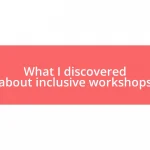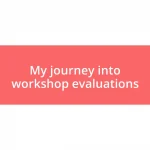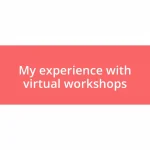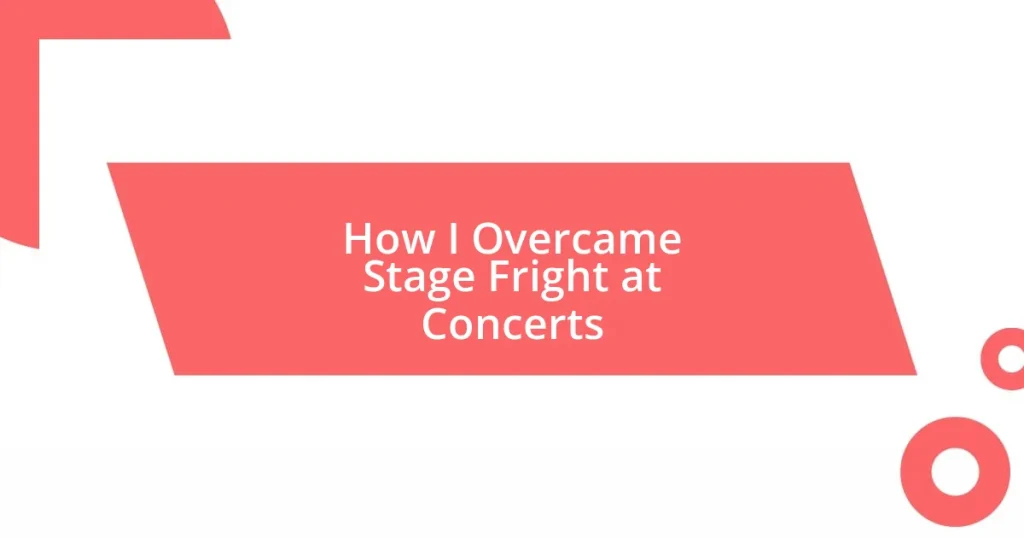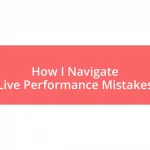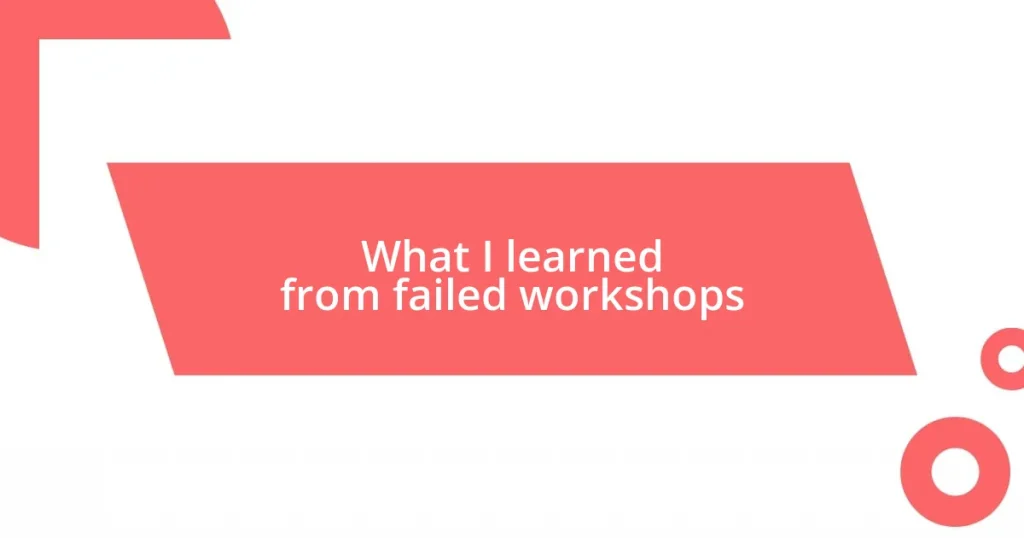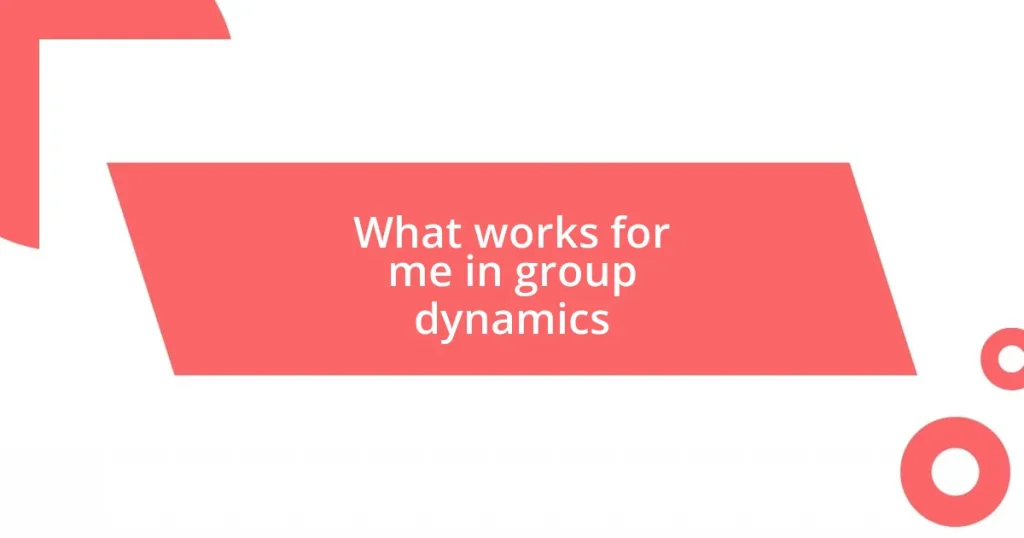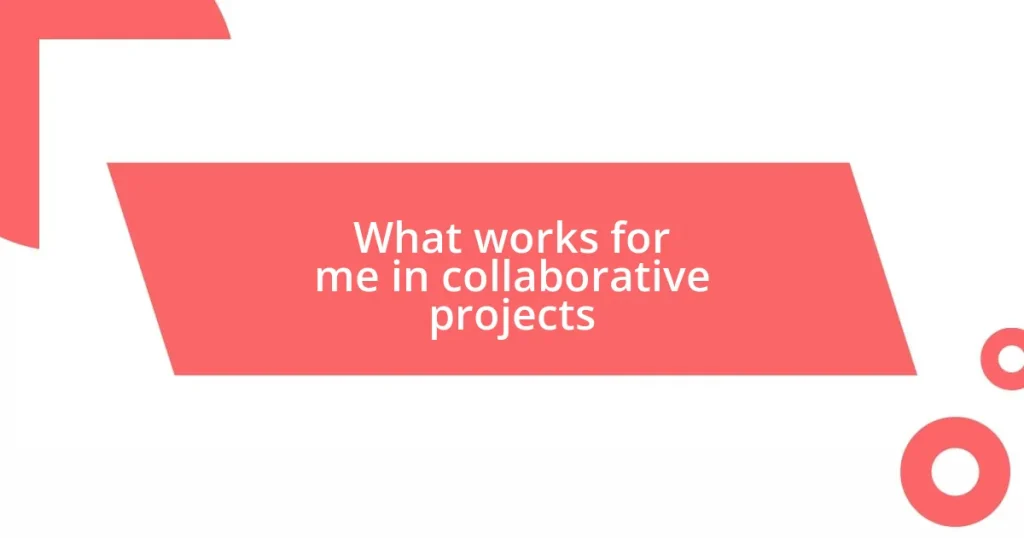Key takeaways:
- Stage fright is often rooted in fear, self-doubt, perfectionism, and cultural pressures, contributing to anxiety about performing.
- Mental preparation techniques, like visualization, deep breathing, and positive affirmations, are effective in reducing nerves before performances.
- Practicing relaxation techniques, such as progressive muscle relaxation and mindful meditation, enhances focus and calms anxiety before going on stage.
- Building connections with fellow musicians through support, shared experiences, and mentorship can significantly help manage stage fright.
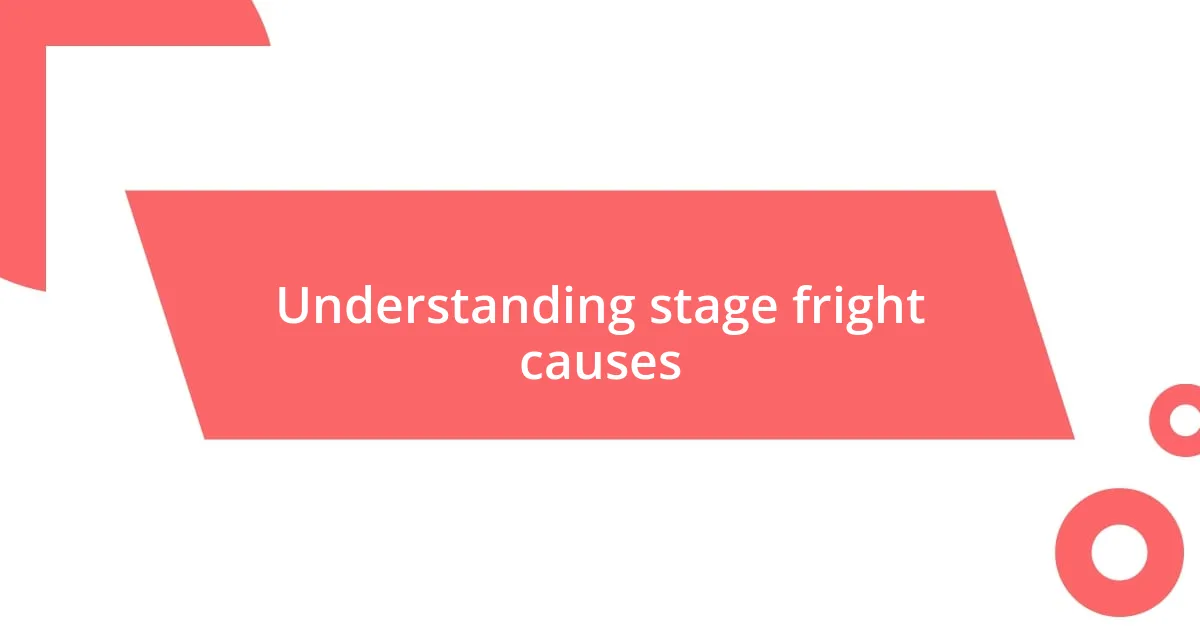
Understanding stage fright causes
Stage fright often stems from a mix of fear and vulnerability that comes with being in the spotlight. I remember my heart racing before my first solo performance; it felt like everyone was staring right through me, ready to judge every note. Have you ever felt that way too? That acute sense of exposure can be overwhelming, where self-doubt rises to the surface and plays tricks on your mind.
In exploring the roots of stage fright, it’s easy to pinpoint perfectionism as a significant factor. I found that my need to deliver a flawless performance only intensified my anxiety. Instead of focusing on the music, I was trapped in a loop of worrying about potential mistakes. Doesn’t it make you wonder how many artists are held back by their relentless pursuit of perfection?
Cultural influences also play a role in how we experience stage fright. Growing up, I often saw successful performers greeted with roaring applause, creating an almost mythical standard to aspire to. This pressure can lead to a fear of disappointing not just oneself, but the audience as well. Have you ever felt that expectation weighing heavily on your shoulders? It’s a tough battle, but understanding these underlying causes was a key step for me in overcoming my fears.
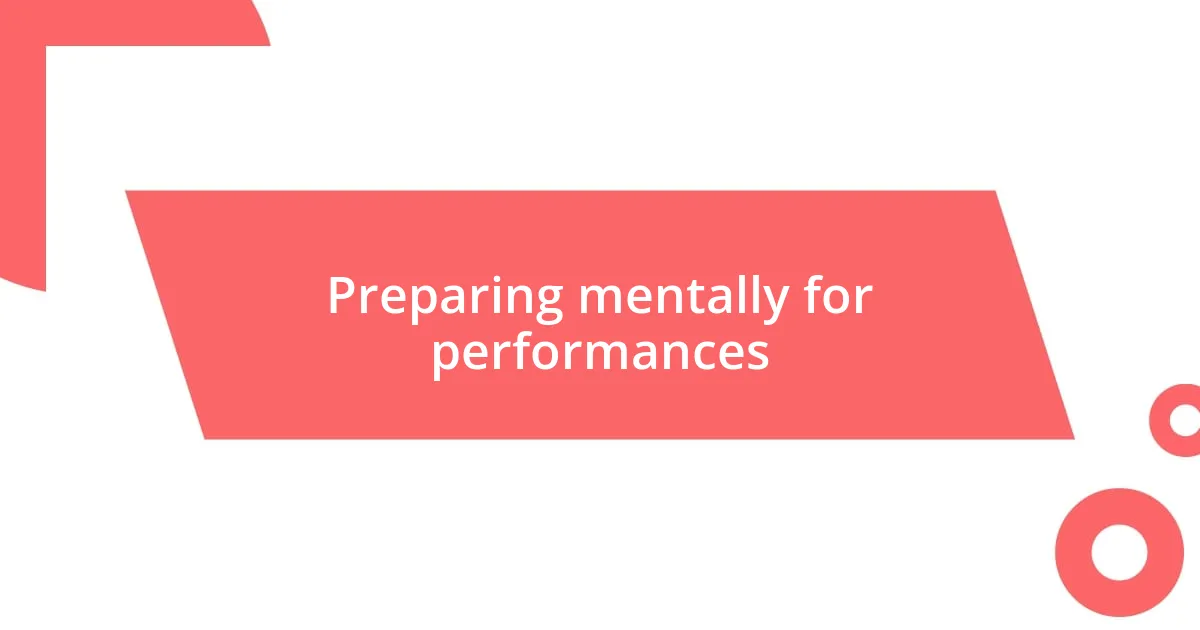
Preparing mentally for performances
Preparing mentally for performances is all about finding that inner calm before stepping into the spotlight. I’ve often found that visualization techniques work wonders. Before a concert, I close my eyes and picture myself on stage, feeling confident and connected with the audience. In those moments, I can almost hear the applause and sense the energy in the room. This practice has helped me shift my focus from anxiety to anticipation.
I also make it a habit to breathe deeply. Deep breathing helps create a sense of control amid the chaos. When I feel the familiar rush of nerves, I take a moment to inhale slowly, hold for a few seconds, and exhale completely. It’s incredible how such a simple technique can ground you. Have you tried it? I promise it makes a difference.
Another strategy involves positive affirmations. I used to repeat phrases like, “I am prepared,” and “I will enjoy this performance” in the days leading up to my shows. These affirmations gradually transformed my mindset. Over time, they became a mantra of sorts, empowering me to face the crowd with confidence. There’s something truly uplifting about drowning out the negative self-talk and embracing a more encouraging internal dialogue.
| Technique | Description |
|---|---|
| Visualization | Picturing success on stage to feel confident and connected. |
| Deep Breathing | Using controlled breaths to ground oneself and manage nerves. |
| Positive Affirmations | Repeating encouraging statements to shift mindset and boost confidence. |
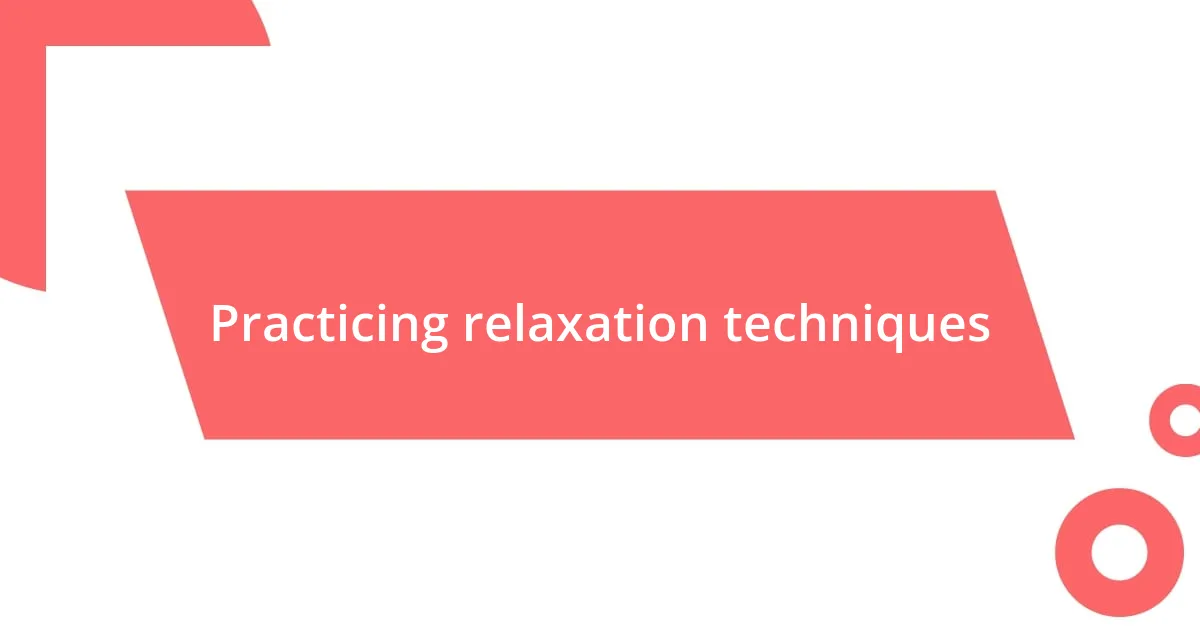
Practicing relaxation techniques
Practicing relaxation techniques has been a game-changer for me. Initially, I struggled with how to calm my racing heart and scattered thoughts before performances. One evening, I decided to try some gentle yoga stretches combined with deep breathing. I remember feeling the tension gradually melt away, replaced by a sense of peaceful focus. It was astounding how quickly I could shift from panic to a grounded state, simply by tuning into my body and breath.
To enhance your relaxation routine, consider incorporating these techniques:
-
Progressive Muscle Relaxation: Tense and then relax each muscle group, starting from your toes and working up to your head. This practice helps release physical tension and brings awareness to your body.
-
Mindful Meditation: Spend a few minutes sitting quietly, focusing on your breath and letting go of intrusive thoughts. I found that just five minutes of mindfulness made my mind clearer and ready for the stage.
-
Listening to Calming Music: Create a playlist of soothing tracks that calm your nerves. Before a performance, I like to lose myself in melodies that uplift my spirit while keeping me relaxed.
Using these techniques regularly can make a profound difference in how you approach your performances. By finding what resonates with you, you’re not just preparing to perform; you’re setting yourself up for success by nurturing a tranquil mindset.
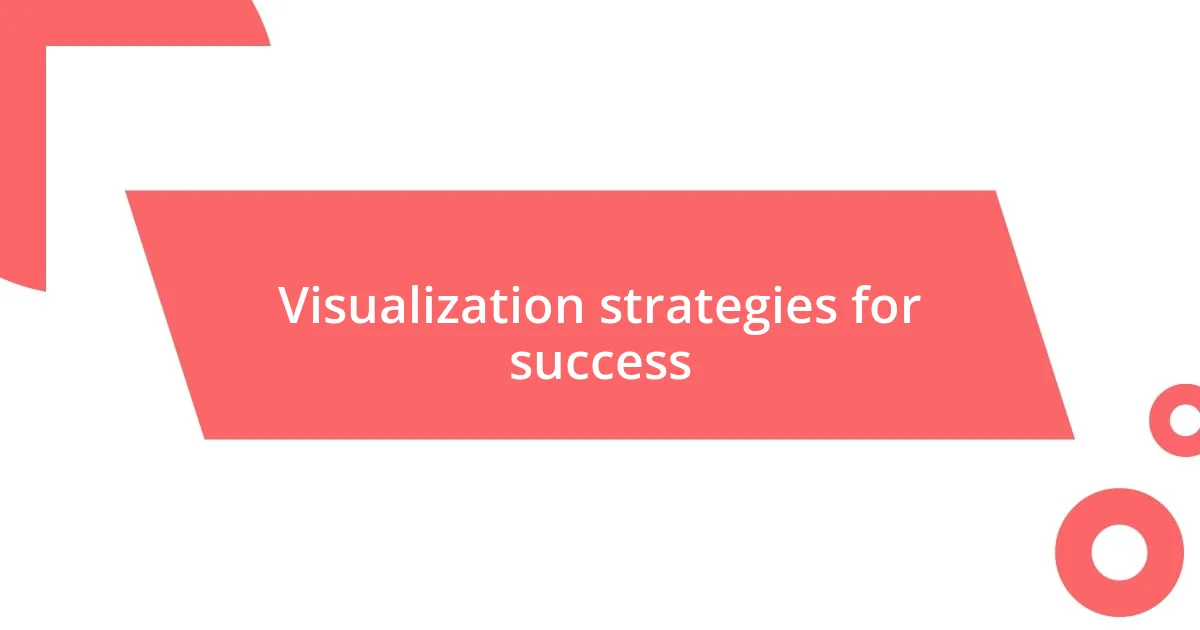
Visualization strategies for success
Visualizing success before stepping on stage can be a transformative experience. I vividly remember one concert where I took a moment backstage to close my eyes and paint a mental picture of myself performing flawlessly. I envisioned each chord resonating with the audience and the joy radiating from their faces. That imagery made the moment feel tangible and helped ease my nerves. Have you ever tried creating a mental movie of your performance? It’s like giving yourself a sneak peek of the success that awaits.
In my journey, I found that incorporating detailed elements into my visualization enhanced its effectiveness. Instead of just imagining the spotlight, I focused on the scent of the wood from my guitar and the warm glow of the stage lights. This multi-sensory approach transformed a simple visualization into a rich experience, making me feel like I had already lived through those magical moments. It’s fascinating how layering sensations can foster a deeper sense of confidence. What specific details do you think would make your visualization more impactful?
I also learned the power of visualizing potential challenges. Before a concert, I would imagine facing a sudden technical issue, like a guitar string breaking mid-song. By mentally rehearsing my response and seeing myself handle the situation calmly, I felt more prepared for the unexpected. This proactive approach significantly reduced my anxiety, knowing that I had already navigated those tricky scenarios in my mind. Isn’t it reassuring to know that when challenges arise, you can either visualize your way through them or embrace them as part of your performance journey? It’s all about crafting a mindset that welcomes possibilities and keeps the focus on success.
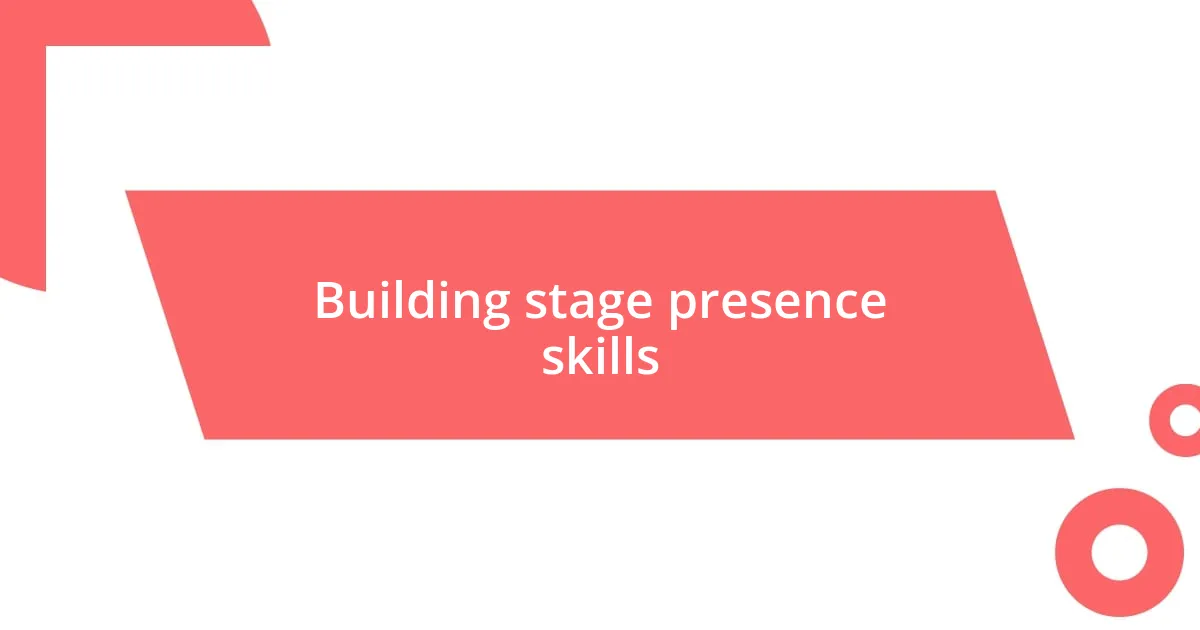
Building stage presence skills
Building stage presence skills is something that I’ve found to be crucial to overcoming stage fright. I remember my first open mic night where my hands were shaking, and I couldn’t connect with the audience. It turned out that rehearsing in front of friends helped me adopt a more relaxed demeanor. I made it a point to focus on eye contact and body language, noticing how these simple changes allowed me to engage my audience better. Have you ever noticed how a confident stance can shift not just your mood but the atmosphere in the whole room?
One helpful practice is to record yourself performing. At first, it felt strange to watch myself, but I quickly learned how to identify my strengths and areas for improvement. I discovered that I often swayed nervously, which distracted from my performance. By actively addressing this, I was able to exude a more composed presence on stage. Isn’t it interesting how something as simple as watching ourselves can provide valuable insights we might otherwise miss?
Over time, I’ve realized that embracing spontaneity creates an authentic connection with the audience. During one performance, I decided to invite a friend on stage for an impromptu duet. That moment of unplanned collaboration not only energized the crowd but also alleviated my stage fright. Each performance has shown me that building presence is not just about skills; it involves being genuinely present in the moment. What experiences do you think could help deepen your connection with your audience?
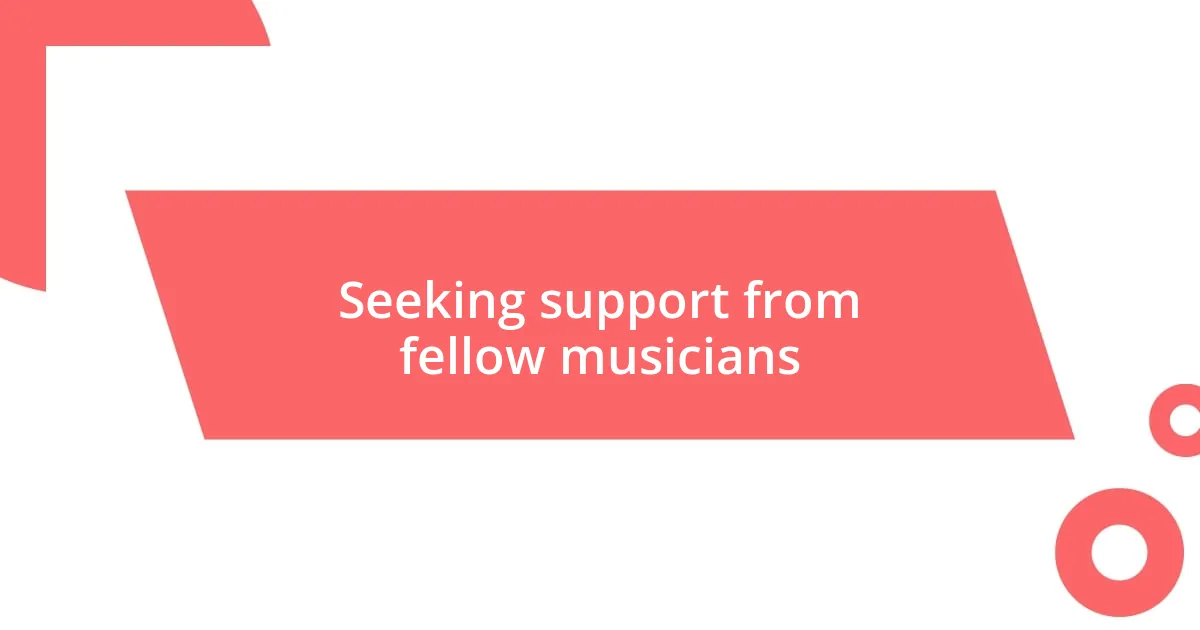
Seeking support from fellow musicians
Connecting with fellow musicians has been a game-changer in managing my stage fright. I recall a time before a significant gig when I felt particularly anxious. I reached out to a bandmate who had been through similar experiences. Just hearing their stories of overcoming nerves reminded me that I wasn’t alone; this camaraderie brought a wave of comfort. Have you ever found solace in sharing your struggles with someone who truly understands?
I’ve also learned that practicing with fellow musicians fosters a supportive environment. During rehearsals, we would share constructive feedback and boost each other’s confidence. Once, while preparing for a concert, my friend suggested we spend a few minutes simply jamming together instead of going through our setlist. That moment of spontaneous collaboration not only lightened the mood but also helped me forget my fears, reminding me how music can unite us. Isn’t it wonderful how collaboration can turn anxiety into excitement?
Being part of a musician’s community also opens up opportunities for mentorship. I sought advice from seasoned performers, who generously shared coping strategies that worked for them. One mentor emphasized the importance of ritual before going on stage, like doing vocal warm-ups together or a calming group chat. These simple traditions have since become my pre-performance anchor, reinforcing that togetherness can diminish those intimidating feelings. Have you thought about how connecting with others might influence your own stage presence?
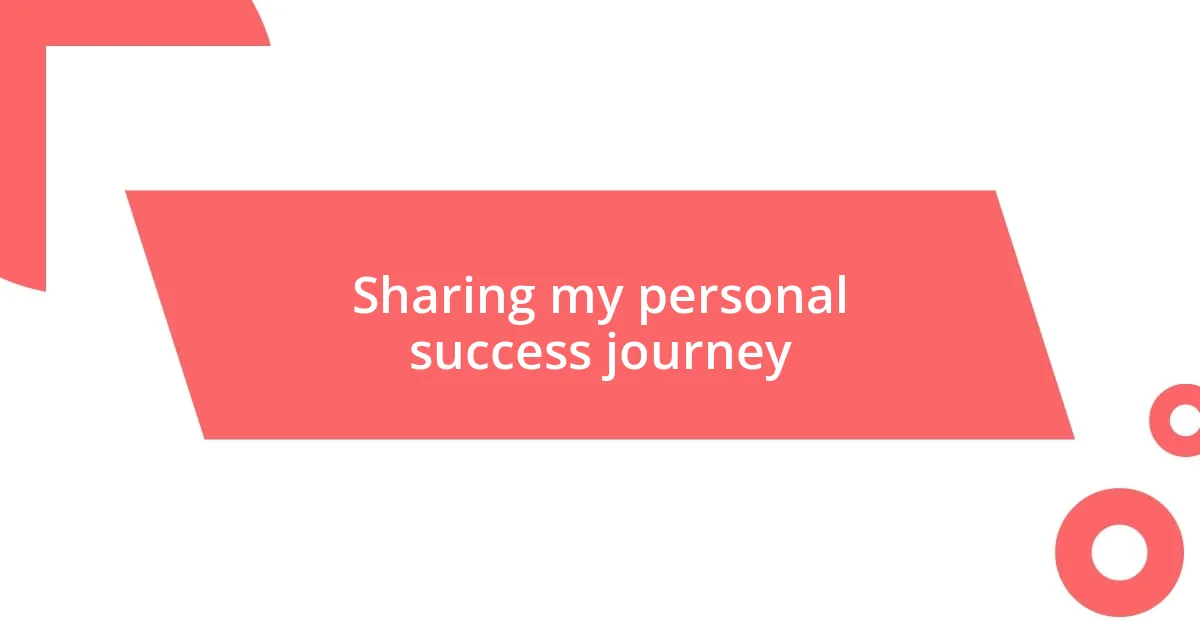
Sharing my personal success journey
Sharing my journey towards overcoming stage fright has been incredibly rewarding. I vividly remember a particular concert where I felt a wave of anxiety crash over me just before stepping on stage. In that moment, I closed my eyes and took a deep breath, recalling the countless hours of practice that led me there. Wasn’t it fascinating how my mind could shift from fear to focus with just one conscious breath?
As I performed, I noticed a familiar face in the crowd—my best friend, who had cheered for me through every trial. Their encouraging smile reminded me of the support I’ve built over the years. In that performance, I realized how connected I felt to everyone in the room, transforming my nerves into excitement. You might find, as I did, that this sense of community can turn a daunting experience into one filled with shared joy.
Reflecting on this journey, I recognize that every performance has been a learning opportunity, each contributing to my growth as both a performer and a person. I now approach stage time not just as a test of skill but as an invitation to connect. And isn’t that a more enriching way to look at it? Instead of seeing the audience as judges, I’ve learned to view them as participants in an experience we all share.





